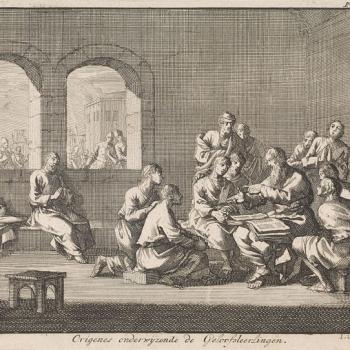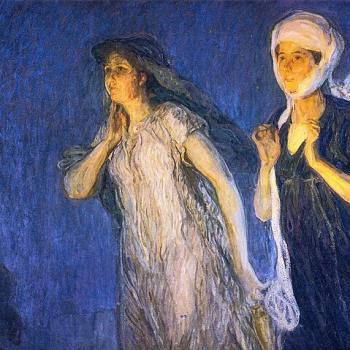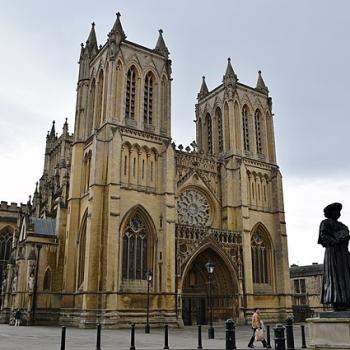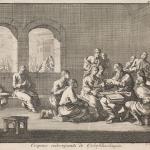I gather that while the American Declaration of Independence was voted on the 4th of July, many, maybe most scholars don’t think it was fully signed until today, the 2nd of August in 1776.
Such a remarkable document, I feel great pausing and reflecting upon it, again…
But, I also find myself thinking of a much later document, a Buddhist declaration first formulated in 2004 and then revised in 2006.
Maia Duerr at her Jizo Chronicles says of this Buddhist Declaration of Interdependence, that it “was originally written in 2004 by Alan Senauke of the Buddhist Peace Fellowship, and presented to delegates of the Republican and Democractic conventions that year. A number of people contributed to subsequent drafts, including: Robert Aitken Roshi, Hilda Ryumon Gutiérrez Baldoquín, Diane Gregorio, Ken Kraft, Santikaro Larsen, Diana Lion, David Loy, Bob Lyons, Susan Moon, Cliff Reiss, Craig Richards, Donald Rothberg, Cedar Spring, Diana Winston, and myself.”
The essay was updated in 2006 and the questions at the bottom were added at that time.
A Declaration of Interdependence:
A Call to Transform the Three Poisons for the Sake of All Sentient Beings
As concerned global citizens and as members of a diverse Buddhist community, we want to contemplate and question the role of government in creating a civil and compassionate society. From the standpoint of interconnectedness, those of us living in the United States have a special responsibility to the whole world to explore this question. We know our government is in a position to effect great social change all across this world—change that can be both positive and negative.
Like most people, we are concerned about the war in Iraq, terrorism, deteriorating public schools, low-paying jobs, racism, and vanishing civil liberties. We are concerned that politics as usual— whether Democratic or Republican—offers little or no meaningful change of direction. Yet we refuse to succumb to apathy, cynicism, or anger. We seek a politics rooted in compassion and generosity born in each of us. Compassion means, literally, to suffer with, to recognize our human connection across all lines of race, culture, nationality, and identity. Generosity means to give freely of what we have, because giving to others is the natural expression of seeing others as ourselves.
Buddhist practice and ethical precepts call forth a range of beneficial views that apply as much to society as to individuals. Twenty-five hundred years ago, when Shakyamuni Buddha was enlightened under the Bodhi Tree, he said, “Now I am awakened together with all sentient beings.” Every person on the planet has the full capacity to wake up from the mistaken notion that we are separate from each other. Each of us is connected interdependently with all others, including those who disagree with us.
This understanding leads to a reverence for the preciousness of all sentient life.
There are barriers, however, that make people and nations believe that they are separate. From a Buddhist perspective, the “three poisons” of greed, hatred, and delusion cloud our minds and skew our actions:
And finally, we do not have government of the people, by the people, and for the people. Rather, government has become a holding company for corporate control. When we fail to point out the unraveling of our democratic system, and—as the aftermath of Hurricane Katrina made clear— the way in which so many citizens lack even the necessities for a life of self-respect, we have fallen prey to the delusion of separateness, and we disempower ourselves and others.
The current political and economic system is tainted by these poisons, which necessarily reinforce each other. When we spend many billions of dollars on a foreign war premised on lies and distortions, we have no money to buy food, medicine, and first-class education for the poor at home…or for displaced peoples in need around the world. So a spiral of anger, resentment, need and confusion spins on and on.
And yet we are called to participate in this very system, even with all its injustices and inequalities. The task before us requires presence of mind, awareness, patience, and perseverance. We wish to be part of a polity that is genuinely representative and fully participatory.
All of us—whatever our faith, political affiliation, cultural background, or economic status—have the same wish for safety and well-being. We may agree or disagree with each other. We may approve or disapprove of a given candidate or representative’s positions. But in these decisive times, when so much is at stake, we must act with courage.
Traditional Buddhist teachings invite us to consider the well-being of the generations to come, seeing the future of parents, children, and loved ones. How will our loved ones be impacted if we fail to take care of the present? This kind of care calls for transformation: personal, political, economic, social, and cultural. Transformation is difficult work. We are often afraid to exchange a familiar situation—even one that causes us suffering—for a future that is unknown. Our challenge is to step into the unknown and not fear change or discomfort. Our challenge is to understand that principled conflict is often the midwife of transformation.
With these principles in mind, we offer three areas of transformation to apply when designing policies that will shape lives around the world. As students of the Buddha’s way of wisdom and compassion, we vow to practice these principles in our own lives, and to bring this understanding into our work in the social and political realms:
The Declaration of Independence of the United States says, “All men [and women] are created equal.” In Buddhism, the corollary teaching is that within each of us there is innate goodness and wholeness. Actualization of these ideals is only possible in a life-affirming society. Therefore, it is our responsibility to create the social conditions and political structures that enable people to live with dignity, honor, safety, and sufficient resources.
Only by working together can we renew our world. Only by working together can we insure that the U.S. will fulfill its promise of liberty and justice for all. In our hearts we long to see this vision born anew. As engaged Buddhists and spiritual activists, we commit ourselves to this path.
Questions for Reflection and Discussion
1. How do the three poisons of greed, hatred, and delusion manifest in my own life as a global citizen? For example, what are my consumption patterns around food, oil, and other limited resources?
2. What is one way in which I can work to transform my personal relationship to greed, hatred, or delusion? How can my dharma practice support this process of transformation?
3. How do the three poisons manifest in the social and political structures in my local region? For example, how does ignorance take form in our school/educational system?
4. What is one local issue that I would like to engage with, and what are some ways that I can support the cultivation of generosity, compassion, and clarity in this area?













